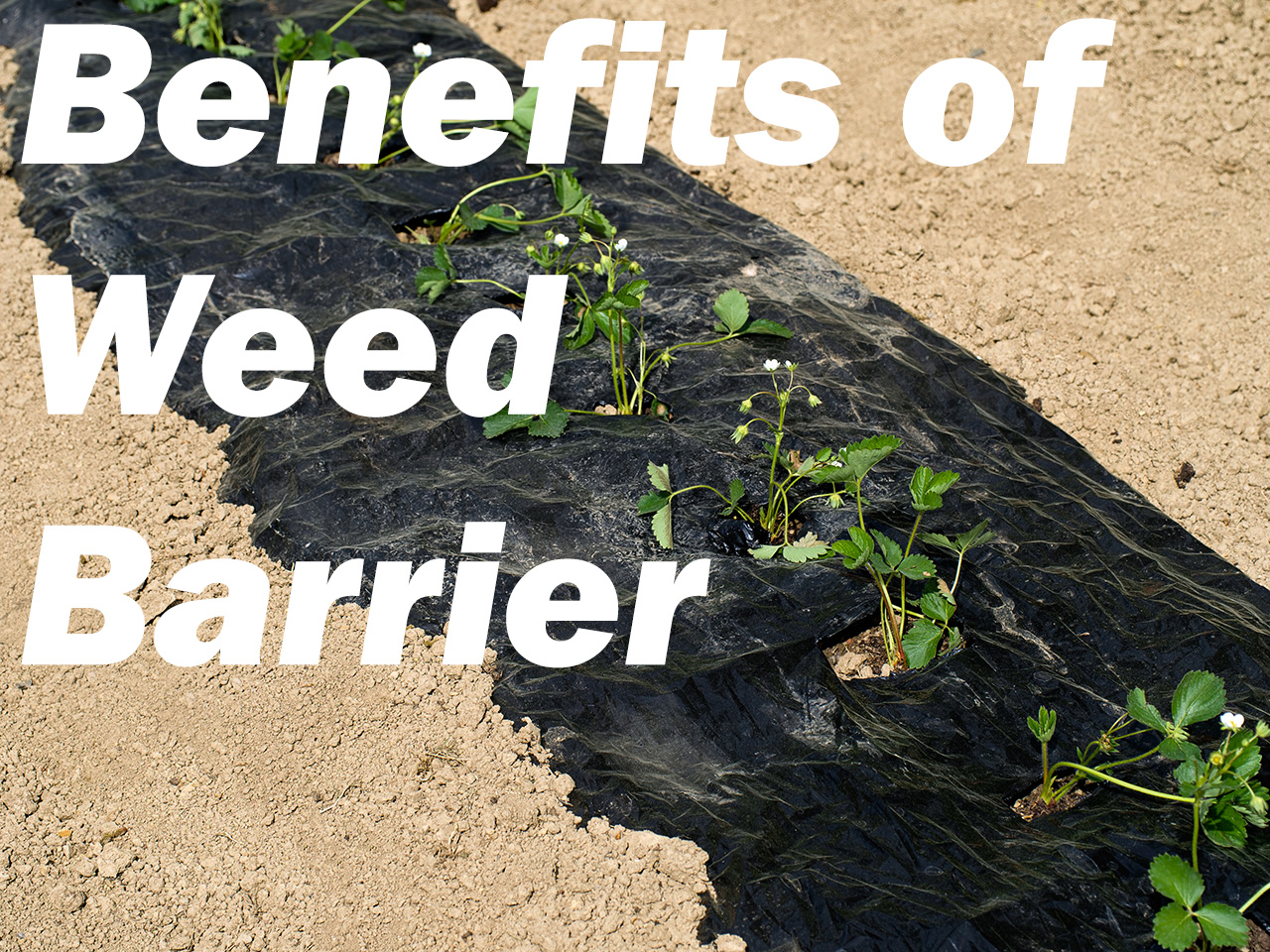The Benefits of a Weed Barrier
Jan 20th 2023
The Benefits of a Weed Barrier
No one wants weeds in their garden, competing with the crops you're trying to grow. Weeds rob your plants of water and nutrients in the soil and the available light in the garden area. Certain crops, like onions, that are slow to germinate and produce slender, upright stems tend to be the most vulnerable. Even larger, more vigorous crops, like tomatoes, squash, and corn, will have to compete with weeds for water and nutrients.
Fortunately, there are multiple ways for you to fight back against those wily weeds. Start your seedlings early in a protected area, like a hothouse or under a row cover. Later, when they're big enough to defend themselves against weeds, you can transplant them into the garden bed. You can also purchase tall, vigorous plant starts at a local nursery and plant them directly into a fresh and clean garden bed.
Weed control is important both in backyard gardening and in commercial agriculture. On a small scale, you can do this chore by hand, pulling all the weeds out by the roots so they can't re-sprout. Some avid organic gardeners weed daily to stay ahead. Many lessen entertain themselves while weeding time by listening to a podcast or an audiobook. Weeding can be done with a trowel, a hoe, a powered cultivator or even a torch.
Applying a 3- to 4-inch layer of mulch, like seedless straw, between all the plants will block weeds from getting the sun and water they need to grow. This straw will last a full season and can be dug into the soil along with some compost to improve the fertility for the next year.
If you would like to spend less time pulling weeds, a vegetable garden barrier is a smart solution. A manufactured weed barrier material is cost-effective and reduces the labor it takes to constantly weed a garden.
Some weed barrier fabrics are biodegradable and environmentally friendly, but last for just one or two seasons, like DeWitt Bio Paper. Others are designed specifically for professional growers, are UV-resistant and hydrophilic for water permeability and years of use. DeWitt Weed Barrier Pro is a great example of a next-level weed barrier. Both fabric materials are easy to cut and install, reduce moisture loss, allow air and water to pass through and create a hostile environment for weed growth. With a weed barrier, the soil will heat up more quickly and the moisture from irrigating will last longer, trapped underneath the fabric or a straw mulch.
On very large acreage, commercial growers plow or till the soil to uproot the weeds between rows, causing the weeds to die or be set back enough so they don't interfere with the growth of the desired crop. This limits competition and provides an effective way to avoid herbicides, keeping the vegetable garden safe, organic, and healthy.
The use of drip irrigation will also reduce the proliferation of weeds because only the targeted plants get irrigated and receive the moisture necessary for growth. The surrounding soil on the land's surface will remain dry, thereby reducing the weeds' access to water and their ability to germinate and sprout. The use of drip irrigation is most effective during the long, dry summer growing season typical in Western and Southwestern states in the U.S., when seasonal rains are few and far between. This irrigation method not only reduces weeds, but saves significant time and money, too.

